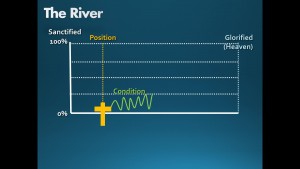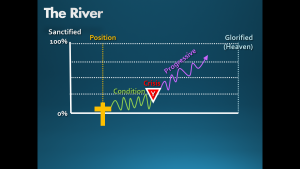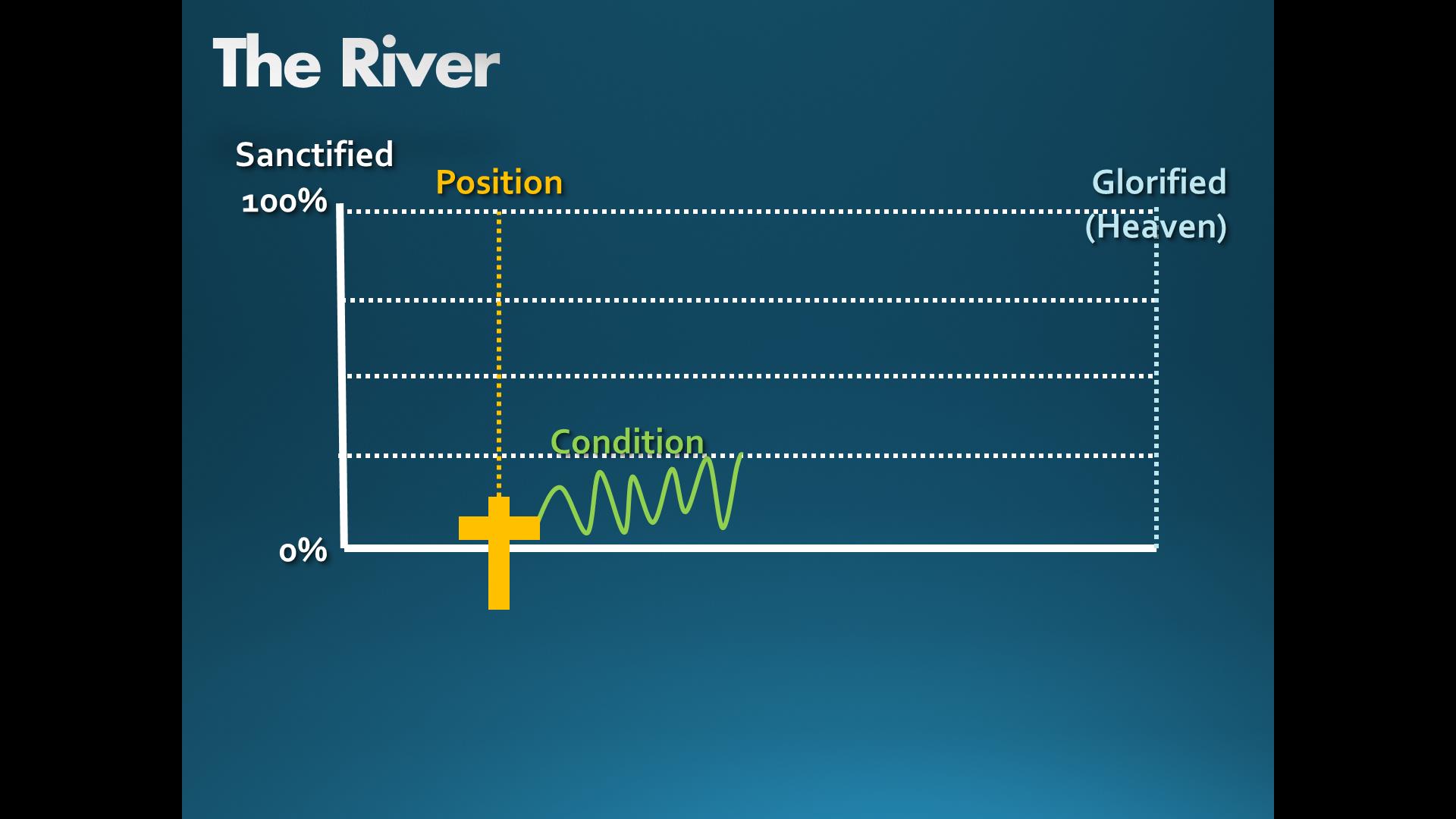 This is part 2 of a 2 part blog on Christ our Sanctifier. If you have not read the first part, you may want to read that first and then come back to this one. The first part focuses on recognizing that Christ is the one who sanctifies us and this second part focuses on our response. If Christ really is our Sanctifier then how to we respond to him? Does he just do this in our lives and we have no part to play?
This is part 2 of a 2 part blog on Christ our Sanctifier. If you have not read the first part, you may want to read that first and then come back to this one. The first part focuses on recognizing that Christ is the one who sanctifies us and this second part focuses on our response. If Christ really is our Sanctifier then how to we respond to him? Does he just do this in our lives and we have no part to play?
Paul addresses this in Romans 6. He begins with an interesting question about whether or not we should sin more so that grace may abound. In other words, if it is amazing that grace covers a small amount of sin, then grace would be seen as even more amazing if the amount of sin was greater, so why not just keep on sinning.
Paul stands strongly against the idea that justification through Christ gives us a license to sin more. Christ didn’t die to give us the freedom to sin, but rather freedom from sin. We still have the capacity to sin, but sin has lost its power against us and we are freed from slavery to sin.
In the I Corinthians 1 passage, that we looked at in part I of this blog, we were reminded of the word redemption. That word actually carries with it the connotation of being bought out of slavery. Like slaves who have been freed, we too have been freed from slavery to sin.
But some slaves after they were freed, continued to live as slaves. Slavery was all they knew for so long and they just didn’t really understand how to live in freedom. We are the same way. We too have been set free, but sometimes we still choose to let sin be our master.
Paul challenges us to realize that after dying on the cross Christ rose again in victory over sin and death and we share in that victory. That is a promise for us for the future as we look forward to Heaven, but it is also a promise for us now. In Christ, we can have victory over sin.
And that brings us to our response to Christ our Sanctifier. There are two pieces to that response. In Romans 6:11 Paul writes, “11 So you also must consider yourselves dead to sin and alive to God in Christ Jesus.” (Rom. 6:11, ESV)
The word here translated as consider in verse 11 is actually a mathematical term. It could be translated as count and can also mean something along the lines of reckon or to take into account. So we are to take into account that we ourselves are dead to sin and alive to God in Christ. We are to look at our lives that way.
 In part 1 of this blog I introduced this sanctification graph that you saw at this top of the article to try and illustrate sanctification for us. Here is the next part of that graph. Let’s pick things up with the crisis moment.
In part 1 of this blog I introduced this sanctification graph that you saw at this top of the article to try and illustrate sanctification for us. Here is the next part of that graph. Let’s pick things up with the crisis moment.
In the Christian and missionary Alliance we talk about a crisis moment. That simply represents that decisive turning point when we decide that we want Christ to be the Lord of our lives. We want to be set apart from sin and set apart to Christ or using the words in this verse it is that moment when we choose to reckon ourselves as dead to sin and alive to Christ.
That is part one of our response. Paul goes on in verses 12 -14 to point out a progressive day by day component that also exists. “12 Let not sin therefore reign in your mortal body, to make you obey its passions. 13 Do not present your members to sin as instruments for unrighteousness, but present yourselves to God as those who have been brought from death to life, and your members to God as instruments for righteousness. 14 For sin will have no dominion over you, since you are not under law but under grace.” (Rom. 6:12-14, ESV)
These verses suggest an ongoing moment by moment and day by day living out of that crisis moment. It is us time and again choosing to be set apart from sin and set apart to God. I love the imagery in these verses. This is a powerful way of viewing sin. Paul is telling us to stop offering our eyes to pornography, and to stop offering our lips to gossip, and to stop offering our fists to anger, and so on.
This is not about trying harder to stop sinning, it is more along the lines of yielding. Actually the word used for present in verse 13, is the Greek word that means to yield. This is us submitting our lives to Christ as Lord and to the work of the Holy Spirit.
Sometimes when we think of Lordship as Christians we look at it as submitting our lives to Christ as master, and we look at the alternative as being free to do whatever we want. But in reality this is talking about shifting from one master to another. Rather than being mastered by sin, we are yielding to Christ as our Lord. There is a decision implied in this concept, but also there is power. We are not relying upon ourselves, but on the Lord to work in us.
We are still going to have ups and downs. There will still be times when we are living this out and times when we are not, but there is a power implied that is beyond us as we are relying on Christ to do this work in us.
So let me share with you how this has played out in my life. I became a Christian at an early age. I grew up in the Church and was a good Christian boy, but I did not really have a deep walk with Christ. My relationship with him was very superficial and I was more of a Jesus user than a Jesus follower. I wasn’t terrible, but I was stuck in some sins like lust and pornography and overall I was struggling with my identity in Christ.
In my late 20’s I was sitting at a railroad track, waiting for a long train to come by. I was feeling overwhelmed and discouraged in my relationship with Christ. I called out to Christ at those railroad tracks that I wanted him to be the Lord of my life and that I needed his help, because I couldn’t do it on my own.
That was my crisis moment. Then I needed to live that decision out moment by moment and day by day. I started to get serious about not offering my eyes to pornography and my mind to lust and I started yielding my life more and more to Christ’s work and his will for my life. And I started to grow.
I still had my ups and downs, but the trajectory of my sanctification changed that day. There is a definite upward trend that is there now that was not really there before that moment. Sometimes it is hard for me to see the progress in the midst of the moments of life, but I can look back and see growth over time.
God has helped me to see victory over sins that used to enslave me. He has helped me grow in Christ likeness and the fruit of the Spirit. You can ask my wife and she will tell you that I am a very different man than I was when we got married. I still am not perfect, but I am on a deeper walk with Christ than I was before that moment on those railroad tracks. And Christ is doing a work in me that I could have never done on my own. Christ is my sanctifier.



